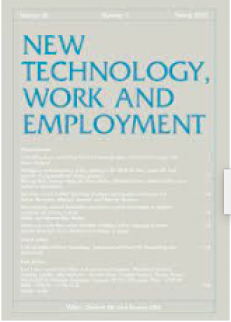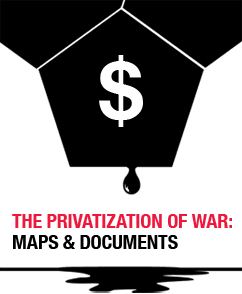Relaciónes laboral
BERLINER GAZETTE CONFERENCE · WORKSHOP PROJECTS · 1999-2023
Working-Class Environmentalism
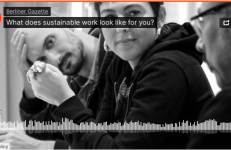
BERLINER GAZETTE CONFERENCE · WORKSHOP PROJECTS · 1999-2023
Working-Class Environmentalism
The Toolkit for Sustainable Work
When asked to imagine what sustainable work would look like, people envision different possibilities, as shown by this sample of participants in the Allied Grounds conference.
Dario Azzellini · Lorenzo Feltrin · Brett Neilson · Anna Saave
Politics of Translation: Preparing the Ground for New Alliances
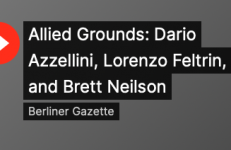
Politics of Translation: Preparing the Ground for New Alliances - 11.10.2023
Dario Azzellini · Lorenzo Feltrin · Brett Neilson · Anna Saave
Podcast: All Things Co-op
People Power - Imagining a World without Bosses
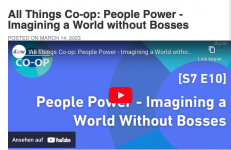
In this episode of All Things Co-op, Kevin Gustafson and Cinar Akcin speak with sociologist, political scientist, author and documentary filmmaker Dario Azzellini. They discuss recuperated workplaces—workplaces that have been abandoned by private capitalist owners and taken over by workers and reorganized to be democratically controlled—and why the process of engaging in struggle with fellow workers builds an enduring ecosystem of trust.
COVID-19 Pandemisi ve Sınıf Mücadelesi
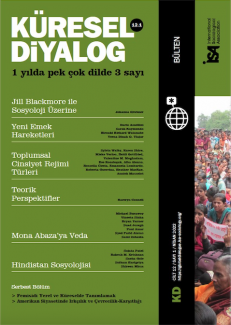
> COVID-19 Pandemisi ve Sınıf Mücadelesi
Dario Azzellini, Zacatecas Otonom Üniversitesi, Meksika
Pandémie de COVID-19 et lutte des classes
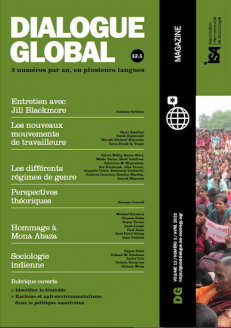
Pandémie de COVID-19 et lutte des classes
Dario Azzellini, Universidad Autónoma de Zacatecas, Mexique
La pandemia de COVID-19 y la lucha de clases
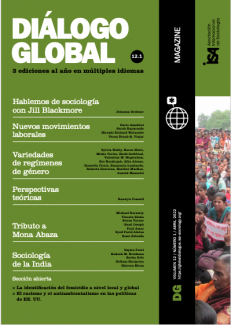
La pandemia de COVID-19 y la lucha de clases
por Dario Azzellini, Universidad Autónoma de Zacatecas, México
The COVID-19 Pandemic and Class Struggle
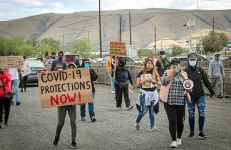
Crises under capitalism tend to increase existing inequalities. This is also a consequence of the handling of the COVID-19 pandemic. Global labor income decreased by an estimated 10.7 % (or US$3.5 trillion) in the first nine months of 2020 compared to the previous year. Meanwhile, the total combined wealth of the more than 2,200 official billionaires worldwide grew from $9.5 trillion on December 31, 2019 to an estimated US$11.4 trillion a year later.
Eine Untersuchung zu neun europäischen Ländern: Frankreich, Portugal, Spanien, Niederlande, Vereinigtes Königreich, Schweden, Norwegen, Polen und Slowakei
Nachhaltige Arbeit Länderstudie über Diskurse, Politiken und Akteure
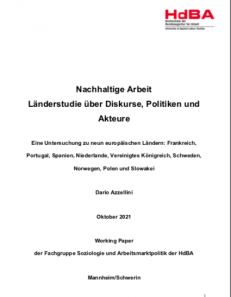
Abstract: Nachhaltige Entwicklung ist politisches Ziel der EU und ihrer Mitgliedsstaaten. CO2-Reduktion, Energie- und Mobilitätswende sind tagesaktuell. Spätestens zum Jahr 2050 soll in Europa die Treibhausgasneutralität erreicht werden, bereits bis zum Jahr 2030 soll die Bundesverwaltung in Deutschland klimaneutral sein. Nicht nur Produktion und Konsum werden sich dadurch massiv verändern, sondern auch die Erwerbsarbeit und die Arbeitsmärkte.
Digitalization and marketization in live music
Limits of the platform economy
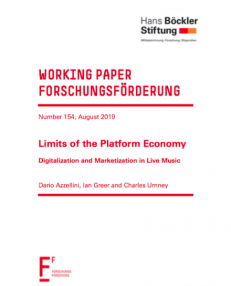
Online platforms have disrupted parts of the capitalist economy, with allegedly severe consequences in the world of work. This study examines live music in Germany and the UK, where online platforms do not dominate, despite considerable digitalization of market intermediaries. The analysis shows that, as the degree of digitalization increases, matching services tend to work less as a workers representative which is traditionally the case for live music agents and more as a force of marketization that disciplines workers by orchestrating price-based competition.
